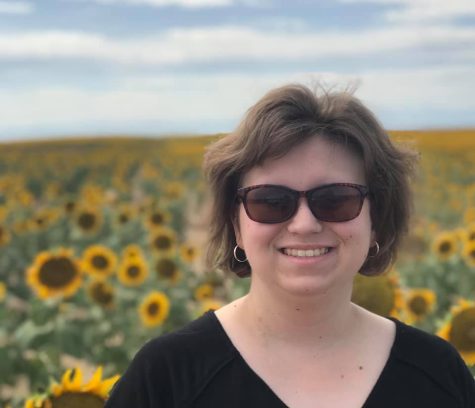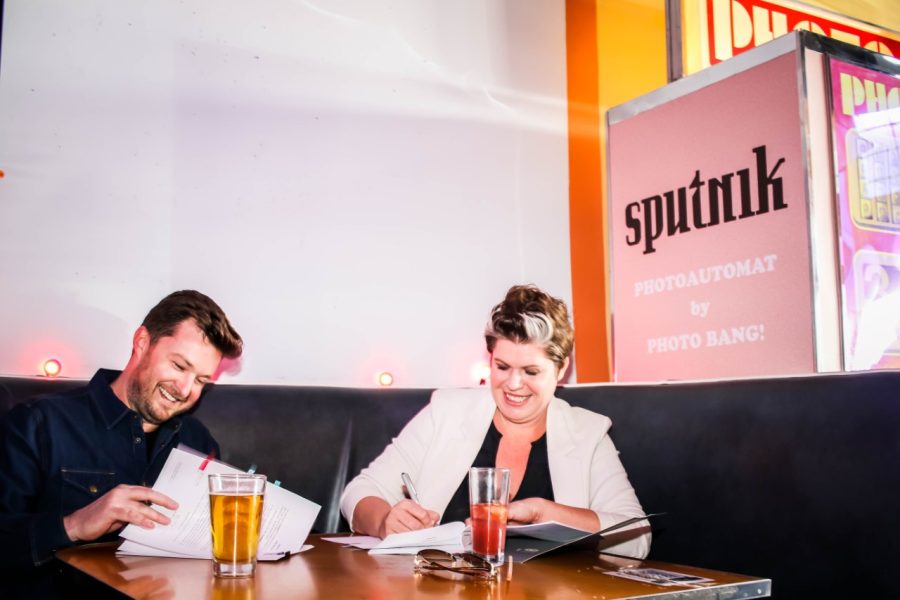Underground Music Showcase & Youth On Record Announce Partnership
Image via Steph Mathena
Image via Steph Mathena
In preparation for this year’s festivities, the Underground Music Showcase (also known as the UMS) has made another significant announcement. Denver-based nonprofit Youth On Record will now be teaming up with Denver-based entertainment company Two Parts to help lead Underground Music Showcase moving forward. The executive director of Youth On Record, Jami Duffy, will now be serving as a co-manager of the newly created UMS LLC alongside the founder of Two Parts, Casey Berry.
“Youth On Record’s history with UMS is very long. Our founders, The Flobots, have played UMS. Years ago, when the Denver Post owned the UMS, there was a man named Kendall Smith who brought us in as a charitable partner. We spent years doing things at the showcase to support the festival and also to raise some money for Youth On Record. We worked the beer tent, we provided volunteers, we brought a really fun thing called Dunk-A-Musician. So, we have always been a part of UMS in some way, either as fans, as musicians, or as charitable partners.”
Members of the leadership team at Youth On Record want to make the industry safer and more inclusive.
“Historically, marginalized artists and employees still don’t have access to thriving wages and thriving careers. Even the amount of total toxicity that we hear BIPOC, women, LGBTQ+ and disabled creators are experiencing is still really prominent. Now, we’re feeling a real sense of moral obligation to address the music industry, and we wanted to start with a close piece of it that we love, which is the UMS.”
After getting in touch with Berry, Duffy pitched a few ideas to him, and that began the conversations about partnering. So, what does this partnership mean for the Underground Music Showcase this year and in the years to come? There are three main areas that the companies will be focusing on moving forward, starting with this year’s festival. The first being something Jami called “thriving artist wages,” which means that the festival will be increasing payments. The second major focus will be providing mental health and sobriety resources for those who may need them.
“We’re focusing on thriving artist wages – paying all the artists more. We’re focused on sober bars, and sober bars are an opportunity for us to do a little bit of harm reduction at the festival to support folks who are sober or folks who want to slow it down for the weekend. We see a lot of alignment with alcohol, but for folks who don’t want to do that, can’t do that, or abstain for many reasons, we just want options. We’re really going to focus on mental health. We’re all going to come together in this brilliant community container, which is a music festival. A music festival isn’t just about music. A music festival is about bringing people together in a community, and ideally, offering care and support for each other. Some of the care and support we can offer is through mental health support. We’re going to be having an impact show that’s all about mental health. We’re going to have mental health resources there.”
Third, the festival will introduce Impact Days, which are dedicated to developing the careers of the performers in a further effort to help them succeed.
“Two days before the festival, we’re going to do a two-day training, professional development, networking, and coaching for all musicians who are asked to play, for free. So, if you play our festival, we’re investing in you. We’re investing in your career. We’re invested in your development. We’re invested in your livelihood. We’re invested in your care.”
Ticketholders will have the option to donate to Youth On Record, and any donations will go towards paying the artists’ more.
“Then, when you’re walking, strolling right in through UMS, you’re going to see support for your mental wellness. You’re going to have options for those sober bars. I think this year will be the most diverse and inclusive lineup in UMS history. That’s not just diversity of identity, it’s also diversity of genre. We’re going to see some really interesting and really cool bands.”
Many UMS attendees are older adults, but Duffy is hoping to bring the festival to a wider audience and share the fun with younger generations of music lovers and aspiring creatives.
“This festival is as much for you as it is for the folks who originated it and were the original fans. I want to see people of every generation enjoying themselves, finding something they love. I’m really excited about how this festival can be everybody’s festival in Denver. That’s the goal,” Duffy explains, ”If people can walk away feeling fed and whole and cared for, they got some resources for their mental health, and they saw some of the best music they’ve seen in a long time, and they were treated really kindly with all kinds of love, and there were people of all ages there… that’s how I want to spend my weekend. It’s really important that people know that if we do UMS right, it’s a tool for us to take care of our community and to love our city.”

Megan Langley is a student at ACC studying journalism and photography. Her passion for journalism started in high school after she began pursuing music journalism, and she has been contributing to various music publications as a writer...




Monica Fuglei • Jul 28, 2022 at 7:58 pm
Thanks for this piece, Megan! This sounds like a great collaboration – I’m so glad you wrote about it.